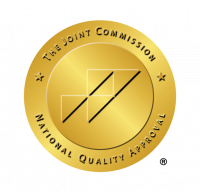As the frosty weather rolls in and daylight hours decrease, it’s common to feel a little bit sadder. For some people, including those in recovery from alcoholism, the wintertime blues is more than an everyday sadness; it manifests as a depression known as seasonal affective disorder (SAD).
Seasonal affective disorder in recovery makes it harder to stay on track. It can be tempting to reach for a drink if you feel sad and hopeless—especially when you aren’t sure how else to feel better. But drinking won’t make you happier in the long run, and it could even make your depression worse.
This post will cover the signs of seasonal affective disorder, practical ways to deal with it in sobriety, and how to keep yourself uplifted until the sunny weather returns.
What Are the Signs of Seasonal Affective Disorder?

It’s estimated that up to five percent of the U.S. population struggles with seasonal affective disorder in any given year. But that number varies depending on location.
If you live somewhere with fewer daylight hours in the winter (in other words, somewhere further from the equator), you may be at a higher risk.
Most people with SAD have symptoms that appear in the fall and winter but disappear come spring and summer. In rarer cases, people can also experience SAD on an opposite timeline, with symptoms appearing in the warmer months instead.
Here are some signs that you’re dealing with seasonal affective disorder, according to the Mayo Clinic:
- Feeling depressed, hopeless, worthless, or guilty frequently
- Being uninterested in things you used to love
- Struggling with fatigue and low energy
- Agitation
- Difficulty concentrating
- Experiencing thoughts of suicide or death
What To Do if You Notice Symptoms of SAD
If you’re suffering from any combination of the above symptoms, one of the first things you should do is see a healthcare professional. Your doctor can analyze your symptoms and diagnose you if necessary. Then, you can receive medical help—whether it’s medication, therapy, or another treatment plan—to get on the path to feeling better.
Aside from professional help, don’t be afraid to talk about your feelings with someone close to you. Support from loved ones can make all the difference during recovery, especially when you’re struggling with depression.

Schedule a private call with a Ria Health team member and we can help you get started.
Tips for Seasonal Affective Disorder and Sobriety
If you’re dealing with seasonal affective disorder in recovery, you might feel the urge to use alcohol more often. When this happens, try to remember that drinking through your depression may only make things worse.
Seasonal affective disorder self-care strategies can be helpful when you need to sidestep the urge to drink. The list below is an excellent place to start, along with any treatments that your doctor recommends.
Invest in a SAD Lamp
A SAD lamp is a light that mimics sunlight. The idea behind these lamps is that they activate certain brain chemicals like serotonin and norepinephrine. They may also help regulate your circadian rhythm.
SAD seems to be related to an imbalance of hormones and brain chemicals caused by less exposure to sunlight. So, a sunlight-simulating lamp can give you a boost by helping your body combat these imbalances.
Get Your Body Moving
Exercise keeps your mind and body occupied and boosts endorphins, which may help you stave off the urge to drink when you’re feeling depressed.
A recent study found that even a small bout of aerobic exercise had the power to reduce alcohol cravings in people with alcohol use disorder. So, try and make exercise—even light exercise—a part of your routine. Your body and mind will thank you.
Do Your Best to Stay Social

If you spend more time alone in the winter, you might occasionally feel the urge to drink by yourself. That’s why staying social is essential—it can play a role in preventing a relapse from seasonal affective disorder.
Ask if your friends want to see a movie once per week, plan a game night, or have regular ice-skating adventures. Any opportunity to surround yourself with people you love is a good way to boost your well-being.
Spend Some Time Outside When Possible
Winters are cold, and the thought of going outside in freezing temperatures doesn’t exactly sound appealing. But getting some natural sunlight can help with seasonal affective disorder and may even help you take your mind off cravings for alcohol.
Even a quick five-minute walk in your front yard could boost your mood and put you in a better state of mind.
Ask Your Healthcare Provider About Cognitive Behavioral Therapy (CBT)
Cognitive behavioral therapy (CBT) is a type of treatment that can help you untangle your negative thought patterns and start thinking in healthier ways. While therapy isn’t an option for everyone, it’s worth considering if you have the resources.
CBT can improve your quality of life, ease depression, and help you deal with the root of your unhelpful thoughts and behaviors. It’s one of the most effective therapies in the world and has been proven helpful for both seasonal affective disorder and substance use disorders.
Staying Sober While Dealing With SAD
The wintertime blues are tough for everyone. But for those dealing with seasonal affective disorder in recovery from addiction, the cold season is especially challenging.
Remember to stay compassionate towards yourself when you’re having a hard time. Beyond that, be proud of yourself for sticking with recovery and looking for other ways to feel better. Even reading this post is a step in the right direction.
If you’re in need of additional support this winter, online programs are a strong option. Ria Health offers regular recovery coaching sessions and group meetings from a smartphone app, so you won’t need to brave the cold weather. Our program offers medical support, anti-craving medications, and digital tools as well—all on your schedule.




